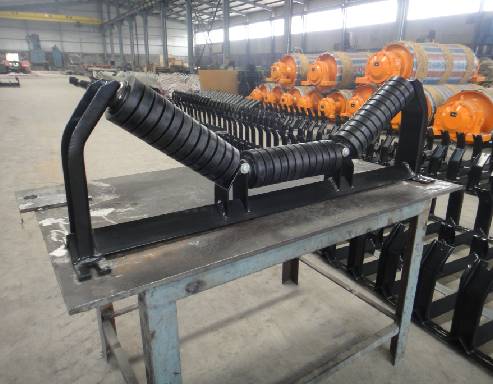 Afrikaans
Afrikaans  Albanian
Albanian  Amharic
Amharic  Arabic
Arabic  Armenian
Armenian  Azerbaijani
Azerbaijani  Basque
Basque  Belarusian
Belarusian  Bengali
Bengali  Bosnian
Bosnian  Bulgarian
Bulgarian  Catalan
Catalan  Cebuano
Cebuano  Corsican
Corsican  Croatian
Croatian  Czech
Czech  Danish
Danish  Dutch
Dutch  English
English  Esperanto
Esperanto  Estonian
Estonian  Finnish
Finnish  French
French  Frisian
Frisian  Galician
Galician  Georgian
Georgian  German
German  Greek
Greek  Gujarati
Gujarati  Haitian Creole
Haitian Creole  hausa
hausa  hawaiian
hawaiian  Hebrew
Hebrew  Hindi
Hindi  Miao
Miao  Hungarian
Hungarian  Icelandic
Icelandic  igbo
igbo  Indonesian
Indonesian  irish
irish  Italian
Italian  Japanese
Japanese  Javanese
Javanese  Kannada
Kannada  kazakh
kazakh  Khmer
Khmer  Rwandese
Rwandese  Korean
Korean  Kurdish
Kurdish  Kyrgyz
Kyrgyz  Lao
Lao  Latin
Latin  Latvian
Latvian  Lithuanian
Lithuanian  Luxembourgish
Luxembourgish  Macedonian
Macedonian  Malgashi
Malgashi  Malay
Malay  Malayalam
Malayalam  Maltese
Maltese  Maori
Maori  Marathi
Marathi  Mongolian
Mongolian  Myanmar
Myanmar  Nepali
Nepali  Norwegian
Norwegian  Norwegian
Norwegian  Occitan
Occitan  Pashto
Pashto  Persian
Persian  Polish
Polish  Portuguese
Portuguese  Punjabi
Punjabi  Romanian
Romanian  Russian
Russian  Samoan
Samoan  Scottish Gaelic
Scottish Gaelic  Serbian
Serbian  Sesotho
Sesotho  Shona
Shona  Sindhi
Sindhi  Sinhala
Sinhala  Slovak
Slovak  Slovenian
Slovenian  Somali
Somali  Spanish
Spanish  Sundanese
Sundanese  Swahili
Swahili  Swedish
Swedish  Tagalog
Tagalog  Tajik
Tajik  Tamil
Tamil  Tatar
Tatar  Telugu
Telugu  Thai
Thai  Turkish
Turkish  Turkmen
Turkmen  Ukrainian
Ukrainian  Urdu
Urdu  Uighur
Uighur  Uzbek
Uzbek  Vietnamese
Vietnamese  Welsh
Welsh  Bantu
Bantu  Yiddish
Yiddish  Yoruba
Yoruba  Zulu
Zulu Impact Idlers Utilized in Belt Conveyors for Enhanced Performance and Durability
The Role of Impact Idlers in Belt Conveyors
In modern industrial operations, the efficiency and reliability of material handling systems are paramount. One crucial component that plays a significant role in enhancing the performance of belt conveyors is the impact idler. These specialized idlers not only support the conveyor belt but also absorb and dissipate the energy generated by material falling onto the belt, thereby preventing damage and ensuring the longevity of the conveyor system.
The Role of Impact Idlers in Belt Conveyors
The design of impact idlers is specifically tailored to handle these heavy loads. They usually feature a robust construction, with impact-resistant materials designed to withstand the high pressures and forces exerted during the loading process. Typically, an impact idler consists of a series of cylindrical rollers that are mounted on frames, allowing them to pivot in response to the forces applied to them. This flexibility not only helps to absorb the shock of falling materials but also aids in maintaining belt alignment.
impact idlers are used in a belt conveyor at

One of the significant advantages of using impact idlers is the reduction of maintenance costs associated with conveyor systems. By effectively absorbing impact forces, these idlers minimize the wear on the belt and other components of the conveyor. This prolongs the lifespan of the conveyor system and reduces the frequency of repairs and replacements. Additionally, a well-functioning belt with minimal wear leads to improved operational efficiency, translating into lower energy consumption and reduced downtime for maintenance.
Furthermore, the adaptation of impact idlers contributes to the safety of the overall conveyor system. By preventing belt misalignment and excessive wear, the chances of belt failure are significantly reduced. This leads to a safer working environment, as conveyor-related accidents can pose serious hazards. Properly maintained impact idlers ensure that material handling operations proceed smoothly, minimizing risks for workers in close proximity to moving equipment.
It is also essential to consider the environmental implications of using impact idlers in belt conveyors. A properly functioning conveyor system leads to better material handling efficiency, which results in less spillage and waste during the transport of materials. This reduction in waste not only decreases the environmental footprint of industrial operations but also enhances the overall sustainability of the materials handling process.
In conclusion, impact idlers play an indispensable role in the operation of belt conveyors in various industries. They provide crucial support, absorb shock, and extend the lifespan of the conveyor belt while enhancing overall system safety and efficiency. As industries continue to prioritize efficiency and sustainability, the importance of components like impact idlers will only grow, ensuring that bulk material handling remains a reliable and effective process.
-
Revolutionizing Conveyor Reliability with Advanced Rubber Lagging PulleysNewsJul.22,2025
-
Powering Precision and Durability with Expert Manufacturers of Conveyor ComponentsNewsJul.22,2025
-
Optimizing Conveyor Systems with Advanced Conveyor AccessoriesNewsJul.22,2025
-
Maximize Conveyor Efficiency with Quality Conveyor Idler PulleysNewsJul.22,2025
-
Future-Proof Your Conveyor System with High-Performance Polyurethane RollerNewsJul.22,2025
-
Driving Efficiency Forward with Quality Idlers and RollersNewsJul.22,2025





























